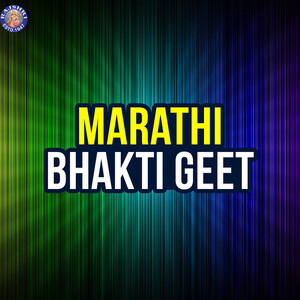

They are full of intense lyricism, based upon pastimes of conjugal love between the Supreme Lord and His most intimate devotees - the Gopis and are not without allegorical dimensions. The compositions are collected under the category of Shringar compositions. By this time, Mehta had already sung about the rasaleela of Radha and Krishna. The Nagars of Junagadh despised him and spared no opportunity to scorn and insult him. It also seems that he must have fallen into a somewhat ill repute amongst the Nagars following incidents like accepting invitation to sing glories of Lord Krishna in association of devotees belonging to lower social strata. He revelled in devotion to his heart's content along with sadhus, saints, and all those people who were Lord Hari's subjects – Harijans – irrespective of their caste, class or sex. In Junagadh, Mehta lived in poverty with his wife and two children, a son named Shamaldas, and a daughter for whom he had special affection, Kunwarbai. Īfter this divine experience, the transformed Mehta returned to his village, touched his sister-in-law's feet as reverence, and thanked her for insulting him for had she not made him upset, the above episode would not have occurred.

He resolved to compose around 22,000 kirtans or compositions. Mehta, as the popular account goes, at Krishna's command, decided to sing His praises and the nectarous experience of the rasa in this mortal world. A legend has it that the poet, transfixed by the spectacle, burnt his hand with the torch he was holding, but he was so engrossed in the ecstatic vision that he was oblivious to the pain. On the poet's request, the Lord took him to Vrindavan and showed him the eternal raas leela of Krishna and the Gopis. One day, when Narasinh Mehta had enough of these taunts and insults, he left the house and went to a nearby forest in search of some peace, where he fasted and meditated for seven days by a secluded Shiva lingam until Shiva appeared before him in person. She was an ill-tempered woman, always taunting and insulting Narsinh Mehta for his devotion (Bhakti). However, Bansidhar's wife (Sister-in-law or bhabhi) did not welcome Narsinh very well. Mehta and his wife stayed at his brother Bansidhar's house in Junagadh. He married Manekbai probably in the year 1429. He was raised by his grandmother Jaygauri. He could not speak until the age of eight. He lost his parents when he was five years old. His father held an administrative post in a royal court. Moreover, you can enjoy this blissfullcollection on 2G/3G and Wifi as well.Narsinh Mehta was born in a Nagar Brahmin family at Talaja and later moved to Junagadh in Saurashtra peninsula of modern-day Gujarat. Ltd., this app helps you listen to the best of this divine collection, at your fingertip. Shiv Bhakti Sangeet – Bhakti songs of Lord Shiva in both Hindi & Marathi language.Ĭallertune – You can set your Ringtone or Caller tune of your Favorite songs on just one tap from any of the two languages Hindi/Marathiįavourites – Add to favourite songs of your choice.īrought to you by Ultra Media & Entertainment Pvt. Set your favourite song as Caller Back Tone! Set your favourite song as Phone Ringtone!Ħ. Create your own playlist with Favourite!ĥ.

Moreover, you enjoy the below features in the app:Ĥ. The app is well categorized and very user friendly. Shiv Shankar All In One is as the name says an All in One app for Lord Shiv Shankar/Mahadev It falls on a moonless February night, when Hindus offer special prayer to the lord of destruction.Ī new way to worship Lord Shiv Shankar/Mahadeva is here! Lord Shiva, also known as Mahadeva (Great God), is one of the five primary forms of God in Hinduism.Shiva meaning "The Auspicious One".Shiva is the "destroyer and transformer" within the Trimurti, the Hindu trinity that includes Brahma and Vishnu.In Shaivism tradition, Shiva is the Supreme being who creates, protects and transforms the universe.MahaShivratri, the night of the worship of Lord Shiva, occurs on the 14th night of the new moon during the dark half of the month of Phalguna.


 0 kommentar(er)
0 kommentar(er)
